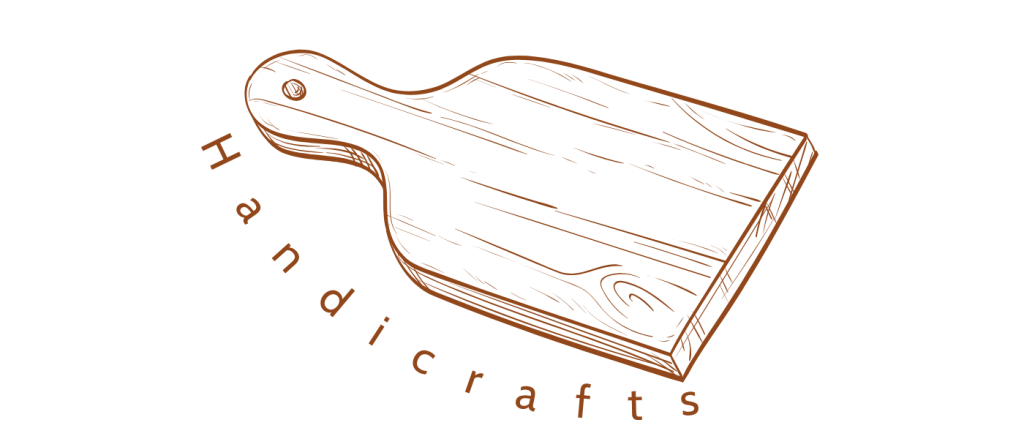In today’s fast-paced, mass-produced world, there is a noticeable shift in consumer preferences toward handmade and artisanal products. This trend is particularly evident in the realm of custom handmade wooden cutting boards, driven by a desire for authenticity, personalization, and high-quality craftsmanship. As more people seek unique and meaningful items, the demand for these beautiful, handcrafted boards is on the rise, reflecting a broader movement toward more mindful consumption.
1. The Shift Towards Unique and Personalized Products
Consumers increasingly desire uniqueness in the products they purchase. In a market saturated with mass-produced items, owning a one-of-a-kind wooden cutting board offers a sense of individuality and exclusivity. Custom handmade cutting boards allow customers to express their personal style and values, making them not just kitchen tools, but meaningful additions to their homes. From selecting the type of wood to choosing specific engravings or designs, the personalization aspect adds to the board’s special significance.
2. Quality Over Quantity
Another driving factor behind the popularity of custom handmade wooden cutting boards is the preference for quality over quantity. These boards are often crafted with meticulous attention to detail, using high-quality woods and traditional techniques that enhance durability. Unlike factory-made alternatives designed for speed, handmade cutting boards reflect the artisan’s skill and dedication. For many consumers, investing in a handcrafted board means supporting craftsmanship that prioritizes excellence and longevity.
3. The Ethical Appeal
As consumers become more aware of the impact their purchases have on the environment, many are drawn to handmade products for their ethical appeal. Custom wooden cutting boards are often produced using sustainable methods, and buying from local artisans supports small businesses and local economies. For those seeking to reduce their carbon footprint, opting for handmade products aligns with their values of sustainability and ethical consumption.
4. The Artisan Renaissance
Today’s market is experiencing a renaissance for artisans and craftsmen, thanks to the resurgence of interest in handmade products. This trend has opened up new opportunities for artisans to thrive both locally and globally. Online marketplaces and social media platforms enable them to reach wider audiences. Consumers appreciate connecting with the makers of the products they buy, learning about the craftsmanship and stories behind each cutting board. This connection fosters a deeper appreciation for the artistry involved and encourages continued support for handmade goods.
5. Customization: The Future of Consumerism
Customization lies at the heart of the handmade product trend. Modern consumers expect brands and artisans to offer personalized options that cater to their specific tastes. Whether it’s having a name or a special message engraved on a wooden cutting board, customization creates a personal connection that makes the final product feel truly special. As demand for personalized items grows, artisans are finding creative ways to offer tailored services, ensuring that each board is as unique as its owner.
6. Supporting Local and Global Artisans
The handmade movement also emphasizes the opportunity to support both local and global artisans. Many consumers prefer to buy from small, independent creators, knowing that their purchases directly benefit the artisans and their communities. This support extends to artisans in developing countries, where handcrafted items provide essential income. By choosing custom wooden cutting boards, consumers help preserve traditional craftsmanship and sustain communities worldwide.
7. The Role of Technology in the Handmade Market
While handmade products are rooted in tradition, technology has played a crucial role in their modern resurgence. Online platforms like Etsy and Shopify have made it easier for artisans to showcase and sell their work globally. Social media allows creators to connect directly with consumers, share their processes, and build a loyal customer base. This technological integration is expanding the handmade market, making it possible for more people to access custom wooden cutting boards that were once available only locally.
8. Conclusion
The growing demand for custom handmade wooden cutting boards reflects a shift in consumer values toward authenticity, sustainability, and personalization. As individuals seek to reconnect with meaningful, high-quality goods, artisans are stepping up to meet this demand with beautifully crafted, unique products. This trend is likely to continue, as more consumers embrace the value of supporting local craftsmanship and creating deeper connections with the items they purchase. The future of consumerism is moving toward customization and craftsmanship, where handmade wooden cutting boards take center stage.
This article emphasizes the reasons behind the rising popularity of custom handmade products and highlights the opportunities it presents for artisans, particularly in the context of wooden cutting boards.
